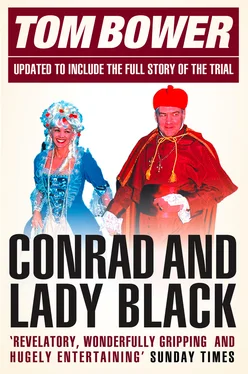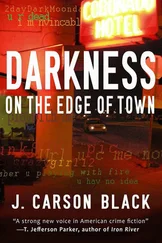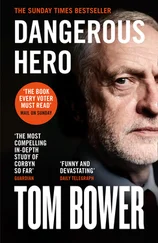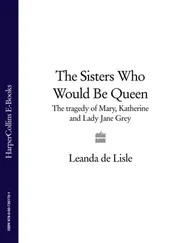Hiding his excitement in a performance that would have been worthy of an Oscar, Black formally made his offer of £10 million for 14 per cent of the Telegraph ’s shares, on condition that if Hartwell needed to raise more money, Black should have the right of first refusal, and that any investment would give Black a majority shareholding in the company. At that moment Michael Richardson ought to have intervened to warn his client about the possible consequences. Instead, he remained silent. Hartwell, he had decided, was beyond saving. ‘My role,’ he would later say, ‘was to ensure the successful placement of the loan, not to care for the Berry family’s interests.’ Unprotected by Rothschild’s, Hartwell replied without fully understanding the implications of Black’s condition, ‘I don’t think, Mr Black, we can resist that.’ Convinced that he would not need more money, Hartwell agreed to gamble his empire for just £10 million.
As Black watched Concorde take off for London carrying Hartwell and his entourage, he understood the astonishing opportunity organised by Andrew Knight. He had cast the bait, the reel was running, and once the pressure slackened he would jerk the rod and wind in the line. There was a risk, but it was limited. As he returned to his plane he could reflect that only six years after the turmoil and aggression following Bud McDougald’s death, he might be about to become a legitimate media tycoon in London. The outstanding hurdle was whether Hartwell would honour his verbal agreement within a formal contract. Black entrusted the final negotiations and drafting to Dan Colson, a friend from McGill University who was now working as a lawyer in London. Colson was to ensure that the pre-emption clauses giving Black an irrefutable right to the company were watertight.
If anyone in the City or the British establishment had wanted to protect the Telegraph from a foreign predator, there was still time to do so. Black was not entirely unknown in London. In the early 1980s he had appeared at a dinner held by Charles Price III, the American ambassador, and was introduced to Tim Bell, the famous publicist who had been at the heart of organising Margaret Thatcher’s first election victory. Bell, well connected and liked, was among those needed by Black if he was to persuade the establishment in London of his wealth and honesty. Gratifyingly for Black, that was unnecessary in 1985. Although Knight was aware of Black’s reputation, he remained silent, while others did not bother to attempt to discover the truth from contacts in Canada. Unlike the protests that had greeted Rupert Murdoch’s purchase of The Times in 1981, no one in London understood or even cared about Hartwell’s fate, least of all his financial advisers. ‘Rothschild’s,’ the banker David Montagu would say, ‘handed the Berry family’s balls to Black on a silver platter.’
Hartwell’s fate was inescapably sealed on 13 June 1985. After the agreement was signed, Black’s behaviour was orchestrated by Knight. ‘Don’t say a word when the announcement is made,’ he ordered, ‘and stay in Toronto, out of sight.’ Without protest, Black obeyed. If his reputation was discussed in London, he knew, there could still be problems once Hartwell’s plight became terminal.
In anticipation of the crisis, Andrew Knight organised a group of advisers to represent Black on the Telegraph ’s board. Besides Rupert Hambro and David Montagu, employed by Jacob Rothschild’s small merchant bank after his family bank had been sold to Merrill Lynch, Knight selected Frank Rogers, an experienced newspaper executive, and Lord Rawlinson, a former Conservative MP and law officer. If anyone in London could have understood Black’s pedigree it was Jacob Rothschild. Renowned for combining his serious patronage of the arts with partnerships alongside buccaneers like James Goldsmith and Lord Hanson, Rothschild had in 1969 advised Saul Steinberg, a rising New York tycoon, during the takeover of the Labour MP Robert Maxwell’s publishing business. In the course of the negotiations Rothschild had publicly exposed Maxwell as a crook, causing his downfall and disgrace. Yet in 1985 neither Rothschild nor David Montagu appears to have considered asking about Black’s reputation in Canada, or to have looked at old newspaper cuttings. Even among the City’s most honest scions there was a laissez-faire response to the foreign incomers passing through the capital, even to someone who had landed a remarkable deal at the Telegraph .
At Knight’s suggestion, David Montagu was appointed chairman of the Telegraph ’s audit committee. Within weeks he unearthed Coopers Lybrand’s negligence. The prospectus issued by Evelyn de Rothschild’s bank to raise the original £80 million had stated that during the following six months the Telegraph would earn £5.5 million. Instead, it had lost £14.4 million. ‘An unutterable shambles,’ Montagu told Black, confirming that the Telegraph ’s financial problems were worse than anyone imagined.
Black arrived quietly in London in early September 1985. Over the following days, with Knight as his guide, he was introduced to his new team. In an interlude, he telephoned the Telegraph ’s classified sales department from his hotel room. ‘I want to place an advertisement,’ he told the saleswoman. Her reply was staggering. The newspaper, she announced, was full for several weeks. She advised him to try the Guardian or The Times . This was better than Black had imagined. On 24 September Black set out for dinner at Lord Hartwell’s house in Westminster, where at Richardson’s suggestion Hartwell was hosting a celebration to mark the completion of the financing arrangements. ‘There’s a need to tiptoe,’ Knight warned Black, ‘so the deal doesn’t get busted.’ Black was seated next to Nicholas Berry, Hartwell’s forty-three-year-old younger son. He intended to present himself as a family man offering help to another family in unfortunate distress.
The dinner was Nicholas Berry’s introduction to the fate of his inheritance. Until then, Lord Hartwell had excluded his two sons from the family business. During his conversation with Black, Berry concluded that the Canadian had ‘taken advantage of an old man’, and was untrustworthy. Looking across the table at Richardson, he was equally shocked. Not only had Rothschild’s issued a misleading prospectus and failed to protect his father in New York, but Richardson appeared to be courting Black as a potential new client. ‘Anyone but Black,’ he told his father. ‘We’ve got to find an alternative source of money.’ Reports of Berry’s renewed hunt for money soon reached Black. Lord Hanson, the Australian tycoon Robert Holmes à Court and representatives of the Australian Fairfax group were regaled with disparaging comments about Black, and all announced their interest in financing the Telegraph . To their dismay, they all discovered that the contract was watertight. Berry was powerless, but was also angry about N.M. Rothschild’s original failure to introduce these more suitable investors. ‘Sour grapes,’ said Richardson in reply to Berry’s protests. Nicholas Berry, Black concluded, had become ‘a pestilential irritation to us’. 8
Two months later, Hartwell was sinking. By November the Telegraph ’s costs were out of control, and the banks refused to advance more money. On the brink of insolvency, only one source of finance was available. From Toronto, Conrad Black offered to advance £20 million in return for 50.1 per cent of the shares and control of the company. At one stage during the tense negotiations conducted by Dan Colson, Hartwell agreed to Black’s take-over, only to reverse his decision soon afterwards. At a critical meeting, the peer appeared first oblivious to his imminent downfall, and then helpless. He collapsed under the stress, and was carried comatose from the boardroom. ‘If he dies, it will save time,’ quipped David Radler from Toronto. While he was careful never to say anything cruel in public, Black did not shed any crocodile tears over his quarry. Gleefully he reported that ‘Lord Fartwell’, Private Eye ’s caricature, was sinking. ‘It had become surrealistic,’ he concluded, ‘as tenacious resistance to the inevitable eventually always does, the surest sign that the endgame was finally afoot.’ 9 Conrad Black could not have anticipated how his scathing homily would become appropriate to himself eighteen years later.
Читать дальше












